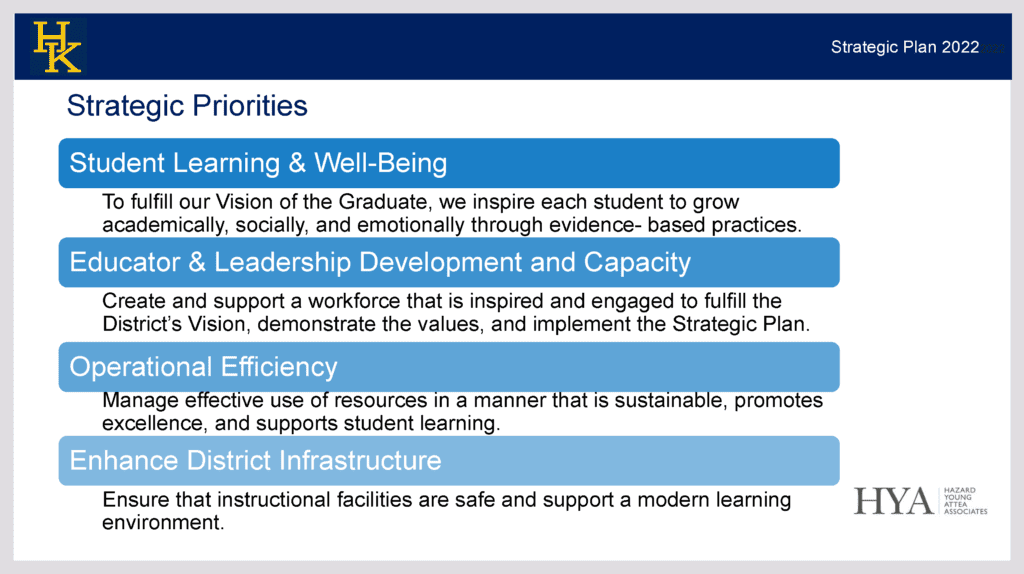Strategic plans are the unifying wrapper for all goal setting and decision making in the district.
While the benefits of strategic planning are vast, many strategic plans fail to achieve desired outcomes in the implementation phase. A strategic plan that collects dust on a shelf and fails to be integrated throughout the district will not be successful. Every educator remembers a time when a research-based program failed to achieve its intended outcomes due to a lack of implementation fidelity, time, resources, support, or professional development. In the same way, strategic plans must be fully implemented and realized to have the desired impact on students.
As consultants, our clients often see Strategic Planning as an additional part of school governance. HYA helps districts understand that it is the driver of all work, requiring alignment of all systems to the mission, vision, guiding principles, goals, and objectives. Through this construct, a new mental model is formed of the work being done at the department, school, and committee levels. The department improvement plans, school improvement plans, and committee work become the implementation plans to achieve the Board’s goals and objectives while remaining faithful to the mission, vision and guiding principles. The department, school and committee work must be seen as an extension of the strategic plan – the implementation plans. Even personnel evaluation, particularly that of the administration, should be aligned with the plan.
When the collective efforts and energy of an entire school system is focused on the strategic plan, the goals are realized and the culture transformed.

At Regional School District 17 (RSD17) in Connecticut, HYA facilitated the process of ensuring there were comprehensive implementation plans for each strategic priority (objectives) and that the school improvement plans were aligned to the Strategic Plan. When the work is seen as interrelated and interconnected, the implementation plans are not the responsibility of one person or the district office, but rather a shared responsibility of everyone in the organization. It is the first step to establishing a more evidenced based culture.
To ensure continued focus on initiatives aligned with the strategic plan, ongoing monitoring reports are appropriate. Administrators are ultimately responsible for implementing the strategic plan. However, a review of implementation progress should be discussed at the Board-level on a regular basis. Board-level discussions should focus on macro-indicators linked to each goal area. Instead of reporting progress on each objective or action, two or three higher-level indicators per goal are recommended. The Board may also decide to track key performance indicators that are related to two or more goal areas.


